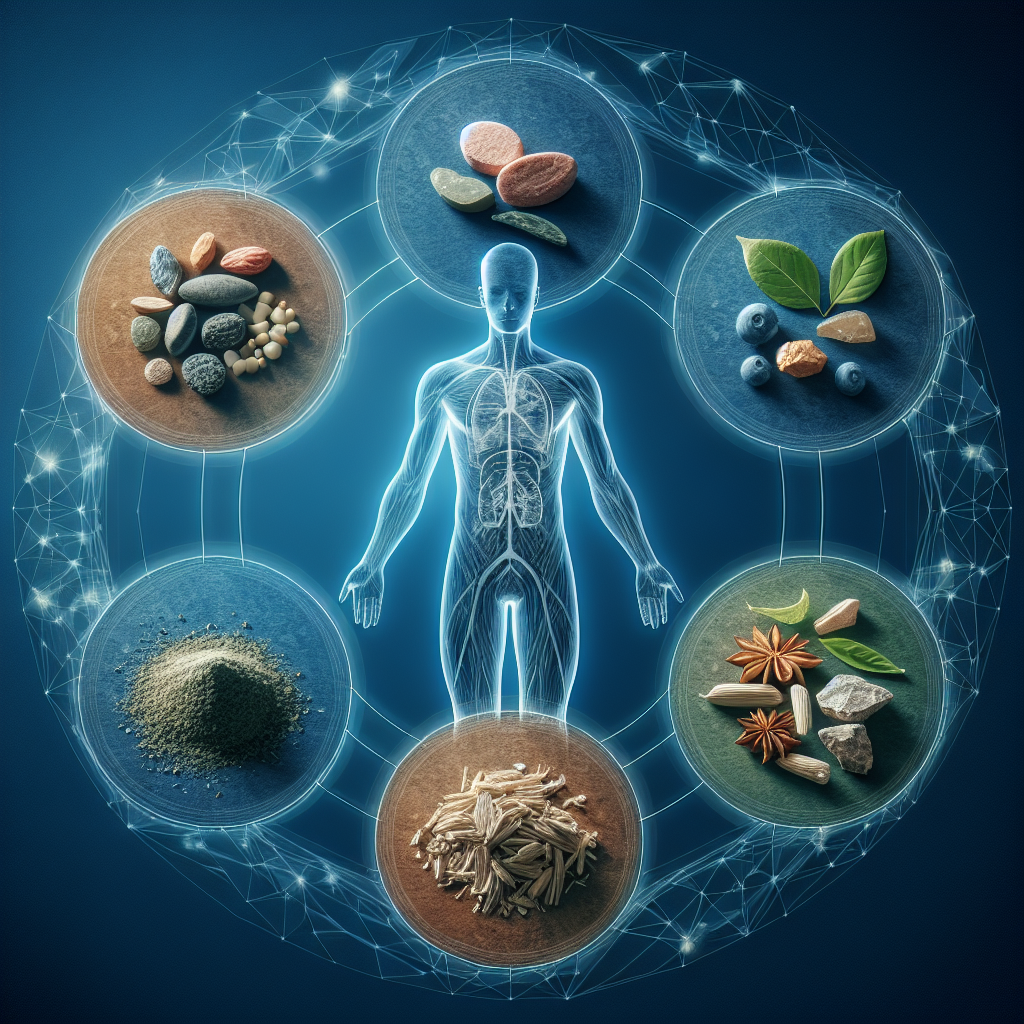In the world of nutrition, maintaining a balanced intake of essential minerals is vital for your overall well-being. However, certain mineral deficiencies can have a severe impact on your health, leading to a range of troublesome symptoms. Today, we will explore four specific mineral deficiencies that can potentially cause serious health problems. By understanding these deficiencies and their associated symptoms, you can take proactive measures to ensure optimal health and prevent any potential complications.

Calcium Deficiency
Definition of Calcium Deficiency
Calcium deficiency, also known as hypocalcemia, refers to a condition where the body lacks an adequate amount of calcium. Calcium is a crucial mineral that plays a vital role in various bodily functions, including bone health, muscle contraction, nerve function, and blood clotting.
Symptoms of Calcium Deficiency
If you have a calcium deficiency, you may experience several symptoms. These can include muscle cramps, twitching, numbness or tingling in the extremities, fatigue, weakened bones, and dental problems such as weak or brittle teeth. Additionally, calcium deficiency may also lead to poor growth and development in children.
Health Problems Caused by Calcium Deficiency
Calcium deficiency can lead to several health problems and complications. One of the most significant risks is the development of osteoporosis, a condition characterized by weak and fragile bones. Without sufficient calcium, your body is unable to maintain healthy bone density, making them more prone to fractures and breaks. Calcium deficiency may also increase the risk of developing hypertension, as calcium plays a role in regulating blood pressure. Furthermore, inadequate calcium intake can impact heart health, as it affects the contraction and relaxation of the cardiac muscles.
Sources of Calcium
To ensure you meet your calcium needs, it is essential to incorporate calcium-rich foods into your diet. Some excellent sources of calcium include dairy products like milk, cheese, and yogurt. Leafy green vegetables such as kale and spinach, as well as nuts and seeds, also provide significant amounts of calcium. Additionally, fortified products like orange juice and cereals can contribute to your calcium intake. If you are unable to meet your calcium requirements through diet alone, calcium supplements may be prescribed by a healthcare professional.

Iron Deficiency
Definition of Iron Deficiency
Iron deficiency, also known as anemia, occurs when your body lacks sufficient iron. Iron is necessary for the production of hemoglobin, a protein in red blood cells that carries oxygen to various tissues and organs.
Symptoms of Iron Deficiency
If you are deficient in iron, you may experience symptoms such as fatigue, weakness, pale skin, shortness of breath, dizziness, and difficulty concentrating. Other signs may include brittle nails, an inflamed or sore tongue, and restless leg syndrome. Iron deficiency can affect individuals of all ages, but it is particularly common in women of childbearing age and those who follow a vegetarian or vegan diet.
Health Problems Caused by Iron Deficiency
Iron deficiency can lead to severe health problems if left unaddressed. Anemia resulting from iron deficiency can cause decreased oxygen delivery to tissues and organs, leading to fatigue and weakness. In children, it may impair growth and cognitive development. Pregnant women with iron deficiency are more likely to experience complications such as preterm birth or low birth weight. Moreover, iron deficiency anemia may weaken the immune system, making individuals more susceptible to infections.
Sources of Iron
To ensure an adequate intake of iron, it is crucial to incorporate iron-rich foods into your diet. Red meat, poultry, and seafood, particularly shellfish, are excellent sources of iron. If you follow a plant-based diet, you can obtain iron from sources like legumes, tofu, spinach, and iron-fortified cereals and bread. Consuming vitamin C-rich foods, such as citrus fruits or bell peppers, alongside iron-rich meals can enhance iron absorption. In some cases, iron supplements may be recommended by a healthcare professional to address iron deficiency.

Magnesium Deficiency
Definition of Magnesium Deficiency
Magnesium deficiency, also known as hypomagnesemia, occurs when there is an insufficient amount of magnesium in the body. Magnesium is an essential mineral involved in various biochemical processes, including energy production, protein synthesis, and muscle function.
Symptoms of Magnesium Deficiency
The symptoms of magnesium deficiency can range from mild to severe. Common symptoms include muscle cramps, weakness, fatigue, irritability, and abnormal heart rhythm. In more severe cases, individuals may experience numbness, tingling, seizures, and even personality changes. Prolonged magnesium deficiency may also contribute to the development of osteoporosis.
Health Problems Caused by Magnesium Deficiency
Magnesium deficiency can have notable health implications. Insufficient magnesium levels can contribute to the development of cardiovascular diseases, as magnesium plays a critical role in maintaining a normal heart rhythm and controlling blood pressure. It can also impact mental health, as magnesium deficiency has been linked to increased anxiety and depression symptoms. Chronic magnesium deficiency may further contribute to insulin resistance and an elevated risk of developing type 2 diabetes.
Sources of Magnesium
To ensure an adequate intake of magnesium, include magnesium-rich foods in your diet. Green leafy vegetables like spinach and kale, nuts and seeds such as almonds and pumpkin seeds, and whole grains like brown rice and quinoa are excellent sources of magnesium. Additionally, legumes, avocados, and dark chocolate also provide significant amounts of magnesium. If needed, magnesium supplements can be considered under the guidance of a healthcare professional.

Zinc Deficiency
Definition of Zinc Deficiency
Zinc deficiency occurs when there is an inadequate level of zinc in the body. Zinc is an essential mineral involved in numerous physiological processes, including immune function, DNA synthesis, wound healing, and growth and development.
Symptoms of Zinc Deficiency
If you are deficient in zinc, you may experience symptoms such as frequent infections, delayed wound healing, impaired sense of taste or smell, hair loss, and skin problems. Individuals with zinc deficiency may also have a weakened immune system, leading to increased susceptibility to infections, especially respiratory tract infections.
Health Problems Caused by Zinc Deficiency
Zinc deficiency can have significant health implications. It can impede normal immune function, which is vital for fighting off infections and maintaining overall health. Additionally, zinc deficiency can lead to growth retardation and delayed sexual maturation, particularly in children and adolescents. It may also contribute to impaired cognitive function and mental health disorders, such as depression and anxiety.
Sources of Zinc
To ensure an adequate intake of zinc, incorporate zinc-rich foods into your diet. Foods such as oysters, beef, poultry, and dairy products are excellent sources of zinc. Vegetarian or vegan options include legumes, nuts, seeds, and whole grains. Zinc can also be found in fortified cereals and supplements, but it is recommended to consult with a healthcare professional before considering supplementation.

Summary
Importance of Recognizing and Addressing Mineral Deficiencies
Recognizing and addressing mineral deficiencies is crucial for maintaining overall health and preventing potential complications. Calcium deficiency can lead to weakened bones and increased risks of osteoporosis, while iron deficiency can cause anemia and impair oxygen delivery. Magnesium deficiency can impact heart health and mental well-being, while zinc deficiency can impair immune function and growth and development. By identifying and addressing these deficiencies through proper nutrition and possibly supplementation, you can ensure optimal health and well-being.
Consulting a Healthcare Professional
If you suspect that you may have a mineral deficiency or are experiencing related symptoms, it is essential to consult a healthcare professional. They can evaluate your symptoms, conduct appropriate tests if necessary, and provide personalized recommendations to address any deficiencies. A healthcare professional can help determine the best course of action, including dietary changes, supplementation, or further medical intervention if required. Prioritizing your health and seeking professional guidance can aid in resolving mineral deficiencies and promoting overall wellness.

